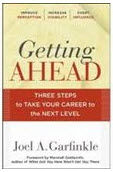By Michael
While your company’s brand is key to its success, building a strong, personal brand around yourself is just as vital.
Since the modern consumer trusts people more than corporations, personal branding is more important than ever. Many people believe organizations and companies speak and act with only profits in mind.
When employees share content, it receives 8 times more engagement than the content shared by the brand’s social media accounts. Considering that we are bombarded by advertisements everywhere, this may not be so surprising.
Personal branding allows you to build an identity within your industry and gain a reputation that will benefit your business.
To establish a personal brand, you need to find a recognizable voice of your own, a signature image, and a standard that your customers, readers, and fans will recognize—just as with traditional branding.
Assess What You Already Have
Which of your skills do people need? What do people already know you for? What do you want to be known for?
Begin by evaluating what you have already done. For instance, if you have published some content, see which posts have performed the best. If you haven’t written anything yet, think about what people ask you about the most.
Your specialty doesn’t have to be the same as that of your business, but it should encapsulate something you want people to associate your business with.
For instance, Richard Branson, a master of personal branding, is famous for being adventurous. Because of this, many see Virgin as an exciting, risk-taking brand.
Keep in mind that quite a lot of aspiring entrepreneurs are devoted to personal branding. If you want to stand out, it’s best to develop a personal brand within a specific niche.
Choosing a general field like “human resources” or “marketing” isn’t enough, as they are far too competitive. So, for instance, if you are a marketer, you could focus on a very specific niche such as print marketing for small businesses, where the competition is lower.
You’ll have a better chance of proving your expertise with a niche focus. Even though your target audience will be smaller, it will be much more relevant.
Build Up Your Online Presence
Sophomoric Facebook activities, unprofessional Twitter feeds, and incomplete LinkedIn profiles are a strict no-no. One survey found that 70% of employers screen social media profiles of candidates.
As a self-employed entrepreneur, you don’t have to worry about HR checking out your Insta feed, but you do have to consider what impression you’re leaving on your customers and clients. Think of them as your employers.
Social media is the engine of personal branding, so one must treat it with respect.
Your audience will want to know more about you as a person. Social media gives you a chance to present yourself as a relatable individual, but still a professional.
LinkedIn has proved to be an excellent platform for personal branding, thanks to its organic reach. It’s a great place to share problem-solving strategies and personal success stories.
Short, 200 to 400-word posts with captivating headlines and interesting openers will grab people’s attention. By regularly posting content, you can increase your brand awareness.
You can search Medium and similar content-sharing platforms to check what topics are hot at the moment. Then, you can use those topics to jump-off your next video or blog post. You can stay relevant by offering your personal take on a current topic.
Get Others to Promote You
While social media is your greatest ally, you must exercise restraint while using it. You don’t want your audience to see you as a self-promoter. Jeffrey Pfeffer, a Stanford Business School professor, wrote about how self-promoting behavior can turn people off in his book “Power.”
Too much self-promotion will damage your reputation. Pfeffer suggests asking others to help you develop your personal brand.
For instance, if you are an SEO specialist who has helped a buddy with their business site, ask them to give you a LinkedIn recommendation or to share a story on how you helped them rank better.
Make a Business Plan
Treat your brand like a company asset. You need a 3-month plan with concrete steps that lead to your goals. Be as specific as you can. For instance, you can aim to have your first guest post published within the next 3-months or to create 2 pieces of content every month.
Just like with any other type of plan, accountability is key. You can find an accountability buddy who will help you stay on track.
Building a personal brand takes time. You’ll have to publish quite a few blog posts before you become a keynote speaker at a conference.
But, if you put enough time and effort into personal branding, you can expect a great ROI. You owe it to your business to start.
Author Bio:
Michael has been working in marketing for almost a decade and has worked with a huge range of clients, which has made him knowledgeable on many different subjects. He has recently rediscovered a passion for writing and hopes to make it a daily habit. You can read more of Michael’s work at Qeedle.
Photo by Clark Tibbs on Unsplash






